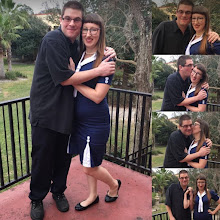Two albums on one disc (see review for individual release dates); this compilation issued by New World Records in 1999; available
6 tracks, 66:48
It's an odd pairing, but this compilation works! Consisting of the late Richard Maxfield's ELECTRONIC MUSIC (issued by Advance in 1967 or '69; sources differ) and Harold Budd's THE OAK OF THE GOLDEN DREAMS (also issued by Advance, but in 1972), this is an hour plus of important and little-known music. Maxfield has been previously discussed on this blog (see the review for NEW SOUNDS IN ELECTRONIC MUSIC). ELECTRONIC MUSIC compiled four of his pieces for a short but delightful trip through pre-synthesizer machine music. "Bacchanale" (created in 1963)is essentially musique concrete, with Edward Fields reading a poem over a strange tape collage. Meanwhile, fellow artists Nicholas Roussakis, Terry Jennings, Fahrad Machkat, and Robert Block provide instrumentation (respectively: underwater clarinet, saxophone, violin, and prepared violin). The liner notes claim no sounds are of electronic origin, but there definitely is some sort of mucking done to the tapes. It's a fascinating piece, but the material surrounding it is even better! "Piano Concert for David Tudor" dates from 1961 and finds Mr. Tudor playing a prepared (I think) piano to the accompaniment of tapes featuring Maxfield manipulating the strings of said piano. "Amazing Grace" and "Pastoral Symphony" (both from 1960) are full-on electronic explorations, sounding light years ahead of their time. "Amazing Grace" even uses a tape of a preacher before Steve Reich's "It's Gonna Rain"; the results are at least Reich's equal! Maxfield's works occupy just under half an hour of this disc, while Budd's massive "The Oak Of The Golden Dreams" and "Couer D'Orr" (from 1969 and 1970, respectively) fill up the rest of the space. These are much more drone-based than the work Budd is best known for, and that actually works in their favor. Budd appears to be heavily under the influence of Terry Riley on these pieces while still managing to establish a distinct identity of his own. "Oak" is performed solely on a Buchla synth played with both hands (one providing a rich drone, the other beautifully improvising), while "Couer" features two tape loops of different notes (D-flat major and B major) played endlessly while Charles Oreña provides a saxophone improvisation; towards the end, one of the loops stops to interesting effect. Both of these tracks are peaceful yet never boring, and they provide a welcome counterpoint to Maxfield's considerably more abrasive pieces. The Budd pieces are also an excellent example of minimalism's influence on later developments such as ambient. Every serious fan of electronic music, ambient, minimalism, and related genres needs to find this disc; you won't be disappointed.

No comments:
Post a Comment